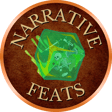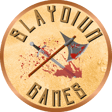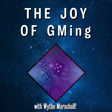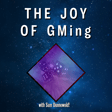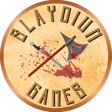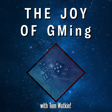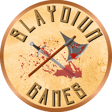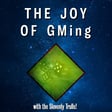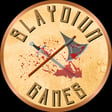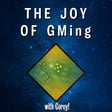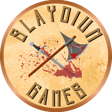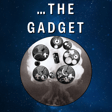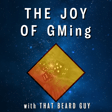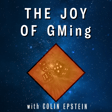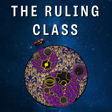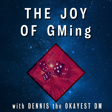Introduction to 'The Joy of GMing'
00:00:34
Speaker
Whether you're at a gaming table, in your comfiest chair reading a book, or listening at home, there's nothing like a great adventure story. But they don't happen by accident. Welcome to the joy of GMing, a special interview series on the craft of great gaming. There's just something magic about sitting down to a good table with great friends, isn't there?
00:00:57
Speaker
Whether you're a lifelong gamer or a newbie rolling up your first character sheet, if you're a DM or a GM or just can't get enough tabletop talk in your day, this is the show for
Guest Speakers and Episode Structure
00:01:08
Speaker
you. Each episode will bring you amazing guest speakers to talk about writing games and running them, building fantastic worlds and compelling story arcs and oh so useful tricks of the trade.
00:01:20
Speaker
hear some amazing stories, get inspired for your next game, and join us for an hour and a half or so of lively conversation. This sister series to narrative feats, the tabletop anthology, will be released between episodes of our ongoing serialized show. We cover some making of and behind the scenes tidbits of our latest mod as well, so do stick around.
Meet Casey Jones and Brandon (Big B)
00:01:43
Speaker
I'm Casey Jones. Over the last dozen years, I've written and produced screenplays, children's animation for TV and film, graphic novels, stage plays, murder mysteries, and award-winning audio adventures. I've also been writing and running tabletop games for over 10 years. Join us as we dive deep into tabletop with experts in the field. Experts like our special guest today, Brandon, aka Big B.
00:02:09
Speaker
A BIPOC nerd, or blurred, poet, writer, critic, fan, renewed gamer who is just happy to create. Create what, you ask? Why, the horror adventure tabletop game, Yule Fay. Big B, welcome to the show. Thank you so much for having me, Casey. You're very welcome. So, let's just dive right in. Yule Fay, what prompted the idea for your game?
Creation and Philosophy of 'Yule Fay'
00:02:38
Speaker
Yulfe came as an idea ah as a result of the, let's say, controversy back in the beginning of 2023 with the D and&D OGL scandal. And o my original table or my current table, I should say, um we had concerns about whether or not we'd still be able to play the game and what we would do as a group.
00:03:07
Speaker
together going forward. So I decided to take it upon myself to create something that is not attached to any kind of controversy in the TTRPG field and something that we could play completely guilt-free. I love it. What are some of your favorite guilt-free surprises so far about playing Yul Fae?
00:03:31
Speaker
One thing that I've learned as a fairly new game designer and testing out the game with my group is that despite making a game, the game can be completely reinvented by anyone that plays it. And that's kind of the fun of it. My group is one of very creative and very nuanced thinking players. So I loved the crafting of it and
00:04:03
Speaker
with the questions I was receiving while playing it, creating the world bit by bit, piece by piece, and just seeing where it would go from from there. Nice. So you mentioned that the game can be reinvented from one table to the next. Can you walk us through how one tabletop of players might play it differently from another?
Gameplay and Mechanics of 'Yule Fay'
00:04:27
Speaker
Well, Yule Fay is, as you said, a horror adventure and it's the crux of the game is to tell a story because in the game you play as what is referred to as a sophist. A sophist is someone that's hired by a publisher to essentially record
00:04:50
Speaker
their adventures. A publisher will Martin Luther style, take a nail, drive it into the back of the neck of the softest. And this nail is magical. And Oh, thank goodness. Yeah. It's not that horrifying quite yet. And while the softest experiences this adventure, they can see it on the back of their neck as papers begin to form and fill out a book, a play, what have you, while they experience everything. Oh, wow. So. Oh, man.
00:05:25
Speaker
This can change from table to table, group to group. And you can choose to go with like a novel route, you can go with a playwright route, you can go with a musical route. My game is also very flexible enough that you can, and I specified it in the book too,
00:05:43
Speaker
take and leave whatever mechanics you wish ah because the point is to have fun and I feel like I'm providing more of a set of guidelines and a way to guide that fun but not demand it out of whoever is playing.
00:05:58
Speaker
That sounds reasonable. Yeah. um I love the visual of putting a a nail into someone's head and just siphoning off a story directly from the base of the skull. It doesn't always feel like that, but sometimes I wish it was just like, oh, let me just plug in and the story will just start filling pages. would Would that it were so? Would that it were? Would that it were? With the sophist in play drawing out the story, what is the gameplay like for the rest of the table? Do they take it up like a Greek chorus? Do they introduce themselves? How does it roll forward? How does it unfold?
00:06:43
Speaker
So I would classify it as a fairly standard adventure. Again, it is a group of individuals that are kind of hired on in order to make this thing happen. Given the fact that this is an urban fantasy setting, you could call this kind of the equivalent of a modern day mercenary group, but more theatrical theater kids.
00:07:10
Speaker
The real crux of The game is, again, the storytelling element, so that's kind of the propelling force behind most of this. I dig it. How is a game of Yule Faye different from, say, a game of D and&D or Monster of the Week? Like, your players have joined Yule Faye, the sophist has plugged in the the nail to get the story flowing, and your modern-day mercenaries are off. What happens next?
00:07:42
Speaker
So one way that you will say is cut different from other TTRPGs. It really benefits from players not only knowing their own character, but players understanding each other's characters as well. There is a gameplay mechanic called finishing the story in which if a character were to go below the amount of hit points that they have and are beginning to die. What happens is the papers that are forming on the back of their neck begin to burn up. And what another sophist can do is start filling out the papers themselves, working against the burning of the paper, and they're continuing the story. So, for example, let's say Ed is starting to pass on
00:08:40
Speaker
Chelsea runs over to him and and starts writing on the back of Ed's paper saying, and as Ed falls to the ground, he remembers the daughter that he would leave behind. And in that, he stands back up. He finds the will to live. Exactly. That's great. So does everyone have one of those sheets coming out of the back of their heads, or is it one particular character this office has chosen?
00:09:07
Speaker
Everyone, the sophist is the job, so everyone has a sheet coming. Everyone has a nail and a bunch of sheets coming down. Wow. You mentioned Martin Luther. I wanted to ask you if there were other historical influences that helped bring Yule Fay to life.
00:09:28
Speaker
because that's a very specific yeah fake thing to refer to, especially the, I want to say, 98 theses he he nailed to the wall.
Influences and Themes in 'Yule Fay'
00:09:38
Speaker
Martin Luther was kind of like the visual influence that I got when I was looking up to make the specific kind of class that someone would play as in Yulfe. As for other influences, Yulfe is a combination of fairy tales and cosmic horror. So obviously a lot of the Grimm Brothers fairy tales, a lot of the Shakespearean kind of tales of the Fae courts and also Lovecraftian and Lovecraftian attached examples of for the cosmic horror elements of the game as well. Expanding upon that slowly. But ah yeah, that's kind of where I'm working from.
00:10:24
Speaker
in terms of connecting like our real world with the urban fantasy world of Yul Fae. I really dig that. Some of my favorite writers have portrayed the Fae in similar otherworldly, nycosmic horror kinds of perspectives. Terry Pratchett, when he played with the Fae, you know, it's like they are wondrous. They can create things of wonder. They are fantastic. They can create things of fantasy.
00:10:51
Speaker
They are terrific. They create things of terror. And the orange and blue morality there of, well, this is obviously because that random child walked through the mushroom circle past the iron gates means they belong to us now.
00:11:07
Speaker
It's not their problem that they didn't know that that contract was struck 300 years ago, long before even their great-grandfather was born. Fae rules! Oh man. Yeah, I also... Changeling the Lost immediately springs to mind as well as another one of those possible urban fantasy settings.
00:11:27
Speaker
for modern day characters to interact with and combat against these otherworldly nigh cosmic horror level threats, which is really fascinating. Tell us about a little bit more about your perspective on cosmic horror, because I would love to hear your point of view as a BIPOC nerd, as a blurred, considering some of the roots of cosmic horror for me are all HP Lovecraft.
00:11:54
Speaker
And this was not a man with fair views of other people. I mean, the racism that was pervasive at the time to say nothing of, you know, his own choices and upbringing. Has that impacted what you take away from cosmic horror? has Do you think it's influenced at all?
00:12:12
Speaker
H.P. Lovecraft was a man who was, in no lesser terms, a fairly horrible individual on a person level. The one thing that he did beyond the initial inception and creation of base Cthulhu mythos is that he was very willing and accepting of other people's people to work on his work, to expand his work, to engage with his work. So while there is a root of that horrifying racism, sexism, classism that he put into his original writings, because he was so willing to allow other people to work on his work, I feel like it's evolved from that state.
00:13:07
Speaker
from that initial state of ah discrimination and old ways of thinking. Well put. I think that there is an evolution because of other writers who have gone gone in there and like even, I believe it was da the Call of Cthulhu series who recently put out, I think I might be getting the name wrong, but I think it was Trouble in Harlem Adventure. okay In the past couple years, trying to expand upon you know the Black experience and how that's not something to be derided in cosmic horror, but something like any other culture to be explored and to be celebrated.
00:13:54
Speaker
Exactly. I was hoping you'd use that word. Celebrated to things I wanted to say. Like, number one, the very nature of cosmic horror is such that the landscape of it cannot be fully captured. The mountains, after all, are full of madness. So the fact that Lovecraft was open to other people, you know, staking out a portion of the map of the unknown to flesh it out with squiddly bits or, you know, another race of fish people and so forth was somewhat open-minded of him. At the risk of sounding somewhat
Cosmic Horror and Racial Themes
00:14:30
Speaker
naive and I apologize in advance, one of the series that I really enjoyed in the last couple of years was Lovecraft Country, the casting of which we're not going to get into, but I was gripped by the mix, the the combination of
00:14:51
Speaker
the horror of the unknown of these creatures that defied immediate understanding, but also the very real terror of African Americans who were not safe to drive on certain streets after dark without the fear of being lynched, without the fear of being tracked down. So not all the things trying to kill you are doing so with claws and... Good God. Prehensile tentacles. ah Some of them are coming after you with ropes and shotguns and trucks full of rednecks. It's it's horrifying. I wanted to ask if you'd seen that. I wanted to ask if Ulfay incorporates similar prejudices with the because they are in the modern world and there are more dangers than just the supernatural. like has that ah Has that impacted the threat levels of Ulfay?
00:15:46
Speaker
I've seen a bit of Lovecraft Country. I've not seen the entire series myself. From the little bit that I have seen, I would 100% agree. But in terms of Yulefe, I wanted to make a story because a lot of times it's very hard as a BIPOC individual to try to find media that doesn't hit upon in at least some way black trauma or some sort of a slavery reference or something to that degree that constantly brings being black to
00:16:34
Speaker
being in pain. So what I wanted to do with Yulfe, I created, while it is our world in terms of like modern setting, ah there are very distinct differences, like the fact that while we do have cell phones and internet and all that stuff,
00:16:57
Speaker
they're still people walking around in armor. They're still horse-drawn carriages because they were so inspired by the time that the fairy tales were being told and that kind of aesthetic that it never really died off. And humanity just kind of integrated it with whatever technological and advancement they were at the time.
Politics and Aesthetics in 'Yule Fay'
00:17:24
Speaker
And there's also distinct politics because instead of having like a democracy in terms of what we have now, a representative democracy or what ah you would call it. It's more of, I guess you would call it kind of a representative oligarchy. o What it is, is that it's more based off of how the fae courts work in that there are specific families that have their own that go into several different branches of government. There are voting for these family members and they kind of compete against each other. So it's very reality TV show at the same time. Almost like a reality TV version of a Faye House of Lords. That's remarkable. So I wanted to ask you, what drives you to keep creating now that you've made you will Faye, like where is your creativity taking you?
00:18:26
Speaker
Well, I took a little bit of a hiatus from the game due to ah personal circumstances in order to get a little bit more inspired once more. But after coming back earlier this year, I find myself more inspired to A, work with the community more. I've been working with artists, with ah graphic designers to update the game. Oh, that's wonderful. Would love to work with other writers.
00:18:55
Speaker
so that there's more than just my voice that goes into the game itself. Just a way to expand how one can interpret the world so that it feels more accessible to a larger number of people. Because my voice might speak to some people, but it might not sound right to others, and I want that to be, you know, grown.
Creative Process and Collaboration
00:19:22
Speaker
Exactly. If you can find someone to harmonize with, someone in the audience picks up that harmony and likes what you're putting down, that could expand your reach. I completely understand. I would love it, and I hope our audience would too, if you could walk us through your creative process. what Where did you start work?
00:19:41
Speaker
on Yule Fay, like you had the idea for a modern day, mildly mercenary, otherworldly, cosmic horror tabletop game. What were your first steps from there? Google Doc. ah my The hardest thing for me when it comes to the creative process is going from brain to paper or brain to document because everything sounds amazing in your head. Everything sounds like it's a revolutionary, better than anything you've ever heard of when it comes into your brain. But once you put it on paper, then you start noticing the things where it's like, ah
00:20:29
Speaker
Actually, I don't need that idea. Actually, this idea would sound better this way. And it's just a matter of getting all of this ethereal thought vomit onto an actual piece of paper.
00:20:46
Speaker
I hear you. I do something very similar myself with a scratch paper document. I've started work on a tropical desert island campaign setting and the first thing I did was make a laundry list of all the different influences that I really enjoyed that had a tropical island setting or featured one at some point in the story. And that led me to the tropes
00:21:18
Speaker
the specific ingredients from those stories like the most dangerous game or a cargo cult you know that worships the junk that fell off a passing cargo plane 50 years ago things like that to the swiss family robinson or pirate's cove so many different story narratives, so many different fantasy worlds have used that setting. There can be common ground found there from a number of different sources that can be cobbled together into this new campaign setting, this new environment, that still feels familiar, it still feels similar to what is
00:21:59
Speaker
expected of that genre. And I totally sympathize. the Yeah, like getting getting a document going where you can just word vomit or brain dump all of the thoughts into one place so you can start ah cherry picking through what really stands out to you. So you can start refining everything into the kind of quality that you want it to be. There's a description. First thought.
00:22:28
Speaker
Like, if someone describes someone's work as very first thought, it might be undeveloped. Or like, oh, that was the first thing they thought of and didn't bother to look any further, it didn't occur to them to try X, it didn't occur to them to refine to Y, e etc.
00:22:44
Speaker
um And I've played games and heard games played where it seemed to me very much like the the person had gone with their first thought. Like the theme wasn't really tied together or the solution they found didn't really have anything to do with what with everything else that was going on in the game. So from one creator to another I just wanted to express my appreciation for you going through And bothering to do the work of like, OK, well, here's everything we thought of. Everything's not going to work. Let's let's narrow it down. Let's let's let's refine. Let's pick out some things that we really want to work on. Can you can you tell our listeners what has surprised you about the journey of creating your own worlds with you? willfe The initial concept of a game is one that is so tied to
00:23:38
Speaker
what you expect out of the games that you've played already. So heavily, I was relying on, you know, D and&D, Call of Cthulhu, other systems that are not coming to mind for some reason at this very second. that's but um But- I mean, Call of Cthulhu is gonna be a major one for the genre we're talking about. ah But when I was working on it,
00:24:07
Speaker
And I was thinking about how those games would work in the setting I was making. I kept stopping and having to reassess and go, no, this doesn't feel right. Despite the fact that this is what I know, this is not what this system should go about and explore.
00:24:30
Speaker
It shouldn't ah feel either too super heroic, like a D and&D campaign, or too completely helpless, like a caller Call of Cthulhu adventure. It should be somewhere in between.
00:24:45
Speaker
And that's where I eventually kind of relied on a 2D6 system. Nice. Because I felt like that was a good mixture of you have a good chance of success, which is the point to ah explore. I don't want to have the players or potential future raconteurs, which are the game masters, ah feel like Every turn that they make, they're just going to die and then the stories are going to be irrelevant. However, they still need to feel dangerous. They still need to feel yes horrifying, which is the hardest part of mixing horror and adventure because on the front of it, they feel like completely opposing genres. Horror, you're supposed to feel weak, helpless and supposed to be running, supposed to be
00:25:38
Speaker
afraid and not wanting to get too deep into what's around you. However, adventure is the exact opposite. That's why my personal philosophy, why I have a way to save people from dying, why the healthcare system is something that is easily accessible in the game, so people can heal from these traumas, both physical and emotional.
00:26:04
Speaker
marvelous is so that this mixture comes together in a satisfying way that doesn't just feel like you were mentioning before, a first draft where they don't tie together, they don't feel like they're meshing and you have to choose between one or the other.
00:26:26
Speaker
Well put, one of the things I appreciate most about a horror game um is the opportunity for players to find their courage, for play for for the PCs to find their bravery when all seems lost, you know, if they've rolled badly and are now suffering the the throes of a panic attack.
00:26:51
Speaker
or they've acquired the frightened condition, or heavens forbid, the stressed condition, which is a nice fun add-on. I love terror and horror gaming. The opportunity to scare the pants off of the characters in a way that the players can feel safely semi-detached from. I've mentioned this before in other episodes and will happily mention it again.
00:27:19
Speaker
that the my favorite definitions of terror and horror are that terror is the anticipation leading up to the scary thing and horror is the the trauma that follows experiencing it in full.
00:27:35
Speaker
um So that the creeping, pounding heart that gets faster and faster as the drooling alien crawls down the way towards you, that anticipation is terror. And watching it on screen or in the mind's eye completely ripping someone to shreds versus you know tastefully going off-camera or finding the body later, that is horror. That is the revulsion both within and without. And I feel Like role-playing games, and especially something as innovative as Yule Fay, can be a wonderful opportunity to ply that courage, to find that bravery.
Roleplaying and Horror Dynamics
00:28:16
Speaker
Because adventure games aren't so terribly different from that.
00:28:21
Speaker
Um, depending on the attitudes of the characters and the mood and setting on Beyonce that we've, we've, we've built for them, you know, because you could have a team of Leroy Jenkins going into the cult of Carna Bogg to slash and hack their way through the entire cult and say like, Oh, we found this Ruby.
00:28:41
Speaker
you know, versus a horror setting where you have to tiptoe in and listen to the shrieks of pain along the way of the various, you know, purifying chambers on their way to try and rescue the chieftain's daughter who's been sucked into this group with promises of everlasting beauty, blah, blah, blah. This is the kind of fun we can have, just brainstorming and and and playing with things.
00:29:07
Speaker
um cosmic horror, though, is such a fantastic genre to play in because it almost demands that you take the players, if not the audience, to somewhere that almost looks recognizable. Like, oh, okay, this is kind of familiar terrain, but then here there be dragons. Then here there be albino penguins, te-ka-li-li-li-li-li-li.
00:29:36
Speaker
and things just get less and less recognizable and more and more unsettling. Because wait, why are things crawling on the walls? Why are bottles dripping sideways? Why am I remembering things out of order can really take us to some some fascinating places. um Definitely. I did want to circle back.
00:30:00
Speaker
because you talked about collaboration and this is somewhere I wanted to talk with you because in a previous episode I had a conversation with another player about the importance of bringing something like diversity not only to the gaming table, but also to creative efforts. And I wanted to get your perspective as a blurred to help us unblur those lines to share with our audience what collaboration feels like to you. In the simplest way I can possibly put it, it's communication. It's being able to extend a hand, send a message, just being able to
00:30:46
Speaker
ah get someone else in on the creative process and specifically in like making um a game, getting someone else in on the creative process that is different from you, whether that be a race, whether that be gender, whether that be identity sexual identity, whether that be ability. Religious background. Yeah, religious background. There are so many different ways that We differ from perspective, from each other. And that is super important when trying to make something that, A, takes up an entire world like Yulfe, and B, is supposed to be something that is intended to be accessible by as many people as possible.
00:31:40
Speaker
And the I would say the hardest part about ah the ah coming together process has to be, at least for me, there's a certain level of guilt because i I want to make sure that people are properly compensated. But as an independent creator, obviously, I can't pay people as much as they are deserving. So I try my best to get as many people as I can in on the project.
00:32:13
Speaker
But it comes very, very slowly because I refuse to be a horror story later on in the future of TTRPGs about someone who didn't do what they were supposed to do with the people that deserved it more than anyone.
00:32:35
Speaker
I get that. That makes a lot of sense. You don't want to be someone's bad experience. You don't want to be someone's bad memory of ah of an unpleasant time. Yeah, no, I am really enjoying talking with you. It is so refreshing to get someone else's perspective on something that you find important to you. Because adding that perspective, getting a point of view that you do not necessarily share 100% of can be eye
Diversity, Privilege, and Player Comfort
00:33:00
Speaker
It can alter for the better how you interact in the future. It can improve the way things go the next time that you interact with someone. If instead of being locked into your own point of view, you can come to a collaboration or even just a talk,
00:33:21
Speaker
and realize, okay, everyone else's experience is not necessarily my experience. Someone else I'm talking with may not have all the advantages I have and may not have all the privileges I have. And it opened my eyes. like it had to be spelled out for me years and years ago that privilege could be something as simple and invisible as oh well I don't have certain obstacles or well I don't have certain disadvantages and so I don't even notice them because they're not on my radar so therefore no one else has this problem that I don't have because I can't see it so it must not be there and that has truly helped me
00:34:03
Speaker
Not only come to new conversations with a little more kindness and a little more compassion and understanding, but also an incentive to try and spread the perspective of, okay, well, you know, not everybody has the advantages you have. Not everybody has it quite as, quote unquote, easy as you do. I don't know if you've played much Curse of Strahd,
00:34:26
Speaker
the campaign setting for D and&D, but the locals do not like outsiders. And it has absolutely nothing to do with the color of their skin. It has everything to do with, oh, you're not from around here. You're just going to make more problems for us. And um I mean, I guess it does boil down that simply.
00:34:44
Speaker
It's a rhetoric. But working with lines and veils, and working with a diverse tabletop, I made sure to impress upon them before the game even started that, like, okay, some of your characters are going to be met with at the very least, some hostility. And it has nothing to do with you as a person, it has nothing to do with you outside of the table, it is the disposition of these characters that is baked into the narrative. And even then, we can still tamp it down, where you You're not getting open, blatant hostility, but maybe just some brusqueness, maybe just a cold look when you push open the tavern door and let in a little bit too much of the chill wind outside. And that did bring me, because I wanted to talk with you about Session Zeroes. You mentioned in your questionnaire that Session Zeroes are super important to you, especially with Yule Fay, and I wanted to get your perspective on it so I could share my own perspective on
00:35:44
Speaker
a session zero for a scary game. um So can you walk our listeners through what you what you would find to be an ideal session zero for a game of Yulefe? So when it comes to session zeros, I have an actual spot in the book that goes into detail on that. um But there is One thing that is very important to impress upon anyone listening is that a session zero might not and probably will not line up ideally or exactly or 100% every time you do it. And that doesn't mean that it is a failed session zero. It's just another session zero in which you can learn and build upon for future sessions.
00:36:42
Speaker
Because even for me, ah even when I try and do a session zero, I will obviously introduce the players to each other if they have not met each other before, try to have light conversation in order to ensure that there's a sense of just basic humanity and not just a bunch of awkward Children sitting in a room waiting for someone to speak ah because that's the worst part about starting a game. But breaking that ice and actually initiating the conversation. Absolutely. Oh, God, yes. But the crux or the important part about the session zero is as a raconteur, I would want
00:37:30
Speaker
the players to feel comfortable enough to either say out loud with the group or DMing me specifically to say, obviously, if you are not comfortable with this, if this is a subject matter that does not sound fun or that you have some sort of previous trauma with, feel free to tell me and I will work around it as much as possible. i And obviously more than that, I will not include it if it's a complete red flag. Exactly. It's hard for session zeros because the drive from most game masters will be obviously the fun and the enjoyment and the overall experience for everyone at the table. And I'll
00:38:27
Speaker
be ah completely honest, I have run a game, not Ulfay, but a different game, in which I had a session zero, I talked to everyone about all of their red flags and things that they don't want. And in the first session, at the very end, I included an element that was a red flag for one of the players I had forgotten.
00:38:57
Speaker
completely and utterly. And in that moment, they told me and it is it is a horrifying moment to realize while completely unintentional, you breached a certain level of trust between yourself, the game master and a player. And in that moment, I obviously said the scene is retconned. It did not happen. We had a conversation at length. They, as a group, also talked to me about how I can do better going forward. Obviously, I apologize and let them know that that was not something that was going to happen again. And it allowed me to
00:39:44
Speaker
build myself up as a game master, this mistake that was one that you don't aim to make, but when it happens, if it happens, there has to be a certain level of self accountability and being better the next time the possibility of it ever even comes up.
00:40:07
Speaker
Agreed. Absolutely agreed. While we're on the subject of safety tools, like a good session zero, I would absolutely love to mention Lines and Veils, my personal favorite. um Basically just a sheet of various things in different categories that someone might be uncomfortable with. the opportunity to say to check a green list, a yellow list, or a red list for like, I'm fine with this, or I'm on the fence about this, or I don't want any of this in my game. There are PDFs of lines and veil sheets that our listeners can find with the simplest of googles to incorporate into their
00:40:46
Speaker
games, especially prior to a Session Zero, so that when you get to the Session Zero, you already know and have already disqualified the things in a game that your players might
Safety Tools and Aftercare in Gaming
00:41:02
Speaker
find distasteful. To give an example, my first Curse of Strahd table, when when they were coming together, I sent out the lines and veils, and one of the things that they came back on was harm to children.
00:41:16
Speaker
and we're not gonna get into any kind of detail there, but it led me to ask them, I was like, okay, how young is too young for quote unquote fictional child endangerment? And like, would a 14 year old be acceptable to this table of players? And they said, yeah, that would that would be okay. You know, as long as they're not like,
00:41:37
Speaker
They're so innocent and young and beautiful. They haven't lived at all and so we incorporated that right into the session zero so that a Character that was in some significant danger was not younger than 14 So it was like oh a teen has carelessly gotten themselves into some sort of peril Etc so that we can respect their boundaries and play around them without putting a toe over something that might make them too uncomfortable And as to the Session Zero itself, structure can be powerful. Because Big B and I have been talking about talking with your players prior to actually getting into the game and introducing each other.
00:42:23
Speaker
um But there are also specific actionable steps we can take with our players in a Session Zero to help them get acquainted with each other, to double-check that we haven't overstepped any of those boundaries, and also to set the expectations for the game in general. There are some wonderful checklists. One I've been using myself is from Bob World Builder, who has a wonderful Patreon. I think there's going to be links in the doobly-doo to that. But a good Session Zero not only helps us get to know our players better,
00:42:59
Speaker
and find out what they love about a good tabletop game so we can focus on that. But also establish expectations of how often we're going to play, what's going to happen if a player is absent, how long to consider before they're technically quote-unquote late. But also go over house rules. Go over things like will there ever be take-backs? How long do we have to make a ruling? Are smartphones a good idea or not at the table? And honestly, if we're doing an idea, I don't think they are.
00:43:27
Speaker
um but ah a well a well-built session zero with some structure and maybe not a to-do list because not everybody's a list kind of person, but with some structure and a plan of attack, so to speak, you can prevent those moments. You can run, you can set up the table, introduce everybody, and start them off on the first leg of an adventure without stepping on those toes, without putting any of the players through something that they have explicitly said they want nothing to do with. But that's also a good chance to talk about aftercare because we're not perfect. And sometimes we do step over a line and we can check in with our players and saying, are you okay? Do we need to talk? How can we make you more comfortable in this moment so that those things don't happen? And if they do, they don't happen twice. Session zero, tirade over. I apologize. I have a lot of feelings about this.
00:44:30
Speaker
It's very important. It is. It really is. Honestly, it made me think more about privilege. Because as the GM, you might think to yourself, well, I don't have any problem with spiders. So therefore, no one else, they're they're not going to be terribly scary.
00:44:49
Speaker
And yet you might have a player at your table who is a dyed in the wool arachnophobe and has put on their lines and veils sheet absolutely no spiders or I'm out. And it's up to you as the GM, the DM, the raconteur to make sure that those elements are out of the story so that your players do feel safe even as their characters may be traipsing into certain doom.
00:45:18
Speaker
Brandon, what does a successful game look like to you? You mentioned a successful game on your questionnaire. I wanted to pick your brain about that. So when it comes to succeeding in Yulfe, that is another reason why I love the game that was built, because again, it can be a diverse answer since the game is structured
Success and Fulfillment in 'Yule Fay'
00:45:46
Speaker
heavily around role play and the storytelling element. When you get done with an adventure in Yule Fay, you can on the one hand be able to climb the tower to find the fairy queen and her mystical wand and bring it back.
00:46:04
Speaker
going through a number of different traps and mazes and whatnot, and you come back and you're able to publish that story and everyone will say, hey, that was like success a successful game. Or you can have it where as you're are traipsing through the swamp of doom and one of the ah players has a full on never ending story scene getting trapped they might end up fully passing away. But if there is an emotional tether that was seen through to the end up until that moment, there can be a satisfying end to a story that even though the story of the person that did end
00:46:54
Speaker
was burned away, this their story is truly not 100% gone as everyone else were still witness to what happened. So in a way, they still live on through everyone else as well. um And that can be a satisfying element to a player who might not see to the end, but their story concluded in such a way as they can say, hey, I'm happy with that. Yeah.
00:47:24
Speaker
Absolutely. Some of the best stories don't necessarily have a purely happy ending, but they can still be richly satisfying and provide closure in ways that a simpler ending where EVERYBODY LIVES WHILE GREAT doesn't provide the same oomph or necessarily even fits the genre, because I would be hard-pressed to come up with a strictly one-note happy ending for anything involving cosmic horror.
00:47:59
Speaker
Yes. Most of the time the protagonists are lucky to make it out alive. It's usually not the entire party that does so and the ones that do will need serious therapy in game or in character after they have left those terrible terrible mountains.
00:48:17
Speaker
I'm trying to think of other examples where a character not making it to the end can still be a success if not a happy ending. Because that does happen. We've had characters expire prior to the end and thankfully in a game they might get a resurrection or something like that.
00:48:36
Speaker
But in another kind of game, i.e. something like Doctor Who, a character's end might not necessarily be all she wrote. They might regenerate, like one story might be over, but the character might renew and stand up again as someone slightly different who remembers all of the things that happened to the previous incarnation, but are now able to take things off in a slightly new direction with a new joie de vivre.
00:49:03
Speaker
I know there's going to be a number of people who their first thought of that is going to be critical roles, Mollymauk, and how exactly that was played throughout that campaign, which, yeah, an ending, but not quite the end.
00:49:20
Speaker
No, but character death can also inspire other characters to take up their torch to avenge them or change their perspective to a point where their new perspective, their new take on things impacts the rest of that story. While we're talking about actual plays, Dimension 20 and A Crown of Candy, based not so loosely on the kind of tone one would find in a game of thrones,
00:49:48
Speaker
Characters die. Characters die messily. Characters die unpredictably, on the road to somewhere important. And the players remain. The players can come back in ah in a session or two with their replacement character at the ready. But the people around them are hardened by that experience. They may be a little colder. They may be a little quicker to distrust. They may be a little quicker to draw the crossbow. and point that plus three arrow of freezing at the next NPC that the that heads their way. um But yes, you're absolutely right. Just because one character dies does not necessarily mean that the story is not a success and that the remaining PCs can't carry that with them and have further adventures that reflect what they've learned.
00:50:39
Speaker
Yeah. So you have created your own game. You have built your own universe. Do you have any pearls of wisdom about world building or game writing that you'd like to share with our listeners?
00:50:52
Speaker
When it comes to world building in particular, the first thing that you have to really question is what is the end that you're trying to reach when it comes to setting this specific tone for this specific creation? Are you trying to make a world that is openly hostile, one that will try to challenge or defeat those that are trying to inhabit it or just trying to live in it, how
00:51:29
Speaker
How much of a challenge is living in this place? Or ah even something as simple as aesthetic? Are you looking to change the world and how different it is from ours just by how it looks like in mine? One of my adventures that I put out takes place in the city called Goldview.
00:51:48
Speaker
which is, again, since it is inspired by the fairy courts, the trims on buildings and monorails are all lined with very shiny gemstones. So as the sun would rise in the morning, it becomes this just bright beacon of light every morning. to signal a new day as something as simple as that just sets the world apart from the world that
World-Building: The City of Goldview
00:52:17
Speaker
the players know and that immediately can suck them into where they're now playing.
00:52:24
Speaker
so In world building, if you're setting it on Earth, you have to ask, how is this going to be different first and then work your way back from there? At least that's how I typically do it.
00:52:39
Speaker
That's very smart. And in terms of game writing, my key is to not get too trapped in your own head, kind of going back to communication and getting in on kind of a group project. My home group really helped me out with writing game mechanics and organizing it because as mainly players themselves, it's easy enough to bounce off of them.
00:53:05
Speaker
What sounds right to you? What is the most digestible for you to understand? Does this sentence sound too mechanical or does this sound fluid? Really just keeping that open line of communication just keeps things working and doesn't get you gummed up in your own head or just stuck staring at a paper constantly second guessing yourself. Very well put.
00:53:30
Speaker
creating a game, writing a book, writing a script, none of these things are perfectly solitary endeavors. You're not making it just for yourself, you're making it for other people to enjoy with or without you present. With something as interactive, with something that is going to be as subjective as a game that other people are going to pick up, it is absolutely essential to check in, to have playtesters, to have people you trust, people that whose perspective you can rely on to not just be an echo chamber of your own point of view, but also to pick up things, to to to notice your blind spots. Because if you could notice your own blind spots, they wouldn't be blind spots.
00:54:20
Speaker
And there are ways to go about this. Like, we're not suggesting you check in with your roundtable after every single line you've written. Finish a draft of something. Build a scene. Do some world building and say, okay, this feels reasonably close to what I want it to feel like. Now let's go and show it to some people that we trust to give us some objective feedback on it, which is incredibly important. Not only for so that we avoid the first thought dilemma of not polishing an idea at all, but also for that outside perspective because you may be the only person that thinks like you.
00:55:03
Speaker
or quite like you, you know? So it's important to have other points of view to help steer you in the right direction. This is why books have editors. This is why people have proofreaders. This is why people consult other people for feedback on their ideas.
00:55:22
Speaker
And it circles back around to world building because in a certain way, it starts with expectation. You don't just completely pull cloth, decide, I'm gonna make a cosmic horror tabletop game and it's gonna be finished when I just start writing it. No.
00:55:42
Speaker
you have to recognize the elements that make cosmic horror cosmic, that separate it from folk horror or gothic horror or sci-fi horror, although there is some overlap. From those expectations, from those things that you personally recognize as great or important or endemic to the genre that you want to write in, it is also key to get other perspectives. To say, well, what if those weren't centipedes falling out of the walls because you don't see a lot of centipedes in so-and-so setting? What if they were rats instead? Or what if it was a nest of spiders, etc., although hopefully not without the arachnophobe
Creative Journey of Brandon (Big B)
00:56:21
Speaker
around? I have been on my own journey as a writer, complete from, I don't know what I'm doing, to, I know what I'm doing, to, wow, I really have no idea what I was doing.
00:56:34
Speaker
The perspective of other people, collaborators in the benign sense of the term, are absolutely critical. They are absolutely key. That's one of the things I love about tabletops in general because the storytelling is collaborative. So, yes, if you have a yen in you to make some game that does not exist. If you have that siren call in your bones telling you to finish the pixie cut small periwinkle fairy game that will compliment Peter Pan
00:57:08
Speaker
or the Space Marines super mega ultra gun-filled explosive pack that'll take place on the third moon of Mars. Do it! Go after it! But make sure that it not only speaks to you, but other people that enjoy the genre. And the only way you're gonna do that is by sharing it before it's fully cooked.
00:57:32
Speaker
You know? Gotta be vulnerable. Gotta be open. Oh, you just hit the nail on the head. You've gotta to be vulnerable. It can be incredibly difficult to be vulnerable. It can be scary as hell, intimidating as hell to put your work out there. But it's the only way your work is gonna improve. It's the only way your work is gonna resonate with other people.
00:57:57
Speaker
And for me, a badge of courage that I pin to my chest when I'm sharing work is, OK, this doesn't reflect me as a person. They're not giving me judgment notes on my soul. They are trying to help me make this work as good as it can be. They are doing me a favor and taking it from that positive perspective of this is not about me. This is not meant to make me feel bad. This criticism is constructive.
00:58:24
Speaker
Uh, and hopefully it is, you know, instead of someone just saying, uh, you can't use a D4 there, you ding-dong. That's not how to construct it. So many memories on lock now. oh
00:58:37
Speaker
Memories like what, Big B? I remember you power gamers. I haven't forgotten. so many people from so many different tables in the past who have been a little bit touchy about how rules are played or how what dice are rolled, as you said, ah because it's not according to the rule book, as even though it's more fun if it's done in a certain different way. o That's the beauty of house rules. So that, and again, something great to mention in a session zero, the house rules to tailor those expectations.
00:59:13
Speaker
You've been working on Yule Fay. How long have you been working on Yule Fay? I started working on it in January of last year, so and it was published February 14th on DriveThru RPG, so it's coming up on its first birthday of being published.
00:59:32
Speaker
Looking forward to that. Happy anniversary birthday! Yay! Hopefully I can get the updated version on DriveThroPG on its birthday. That is what I am aiming for. My fingers are invisibly crossed for you, sir.
00:59:49
Speaker
Where were you in your journey as a player when you decided, I'm going to write my own game? Like, have you been a dyed in the wool player since you were 12? Is it something you came to in your 20s? Like, how much of a gamer were you when you realized, hey, I want to write my own one of these? So I started when my friend invited me to a D and&D game.
01:00:17
Speaker
in 2014, 2015. And the game kind of died off quickly, but we wanted to continue. So as someone that was newly introduced, my first book was the D and&D Homebrew Wiki. I didn't even know that there was a an actual book. I thought it was just an online thing that people just cobbled together. So I started DMing from there after like three sessions as a player.
01:00:57
Speaker
And I have been pretty much the forever DM since then, and I've been... solidarity. I've been pretty much ah just trying to get whatever kind of inspirations from other games that I could, trying to read what I could, but I also still wanted to, you know, pay for it, which... money. Yeah, ever since then, I've been
01:01:28
Speaker
trying to run my own games, run my own worlds, and by the time the OGL thing happened, I was at least pretty decent at creating a general setting and pretty decent at home brewing, different rules, so I thought it would be really easy to just make my own game system. And then I i got there and I'm like, what what am I doing? Where am I? How did I get here?
01:02:05
Speaker
This looks super easy. Oh man. It's just words on a page. It's just words on a page in a certain specific order. I didn't want to do that.
01:02:15
Speaker
Oh my god. One of the bitterest pills I ever had to swallow was realizing that just because someone could make a thing I wanted to do look easy did not necessarily mean that I would start at that same location of, oh this is a cinch!
01:02:35
Speaker
This is a piece of cake. But to encourage our listeners, rather than discourage, just because a thing that you decide to tackle as a creative project does not immediately yield the emotional results that we might hope for, doesn't mean that we can't get on the right path and figure out where we've made a misstep, where we can do things better, where we can do things more efficiently the next time, so that it is a little easier for us, so that we do rely a little bit more on our own instincts and our own creativity than deferring to what has been published with a gaming license open or otherwise.
01:03:17
Speaker
Because yeah, part of being a creative is starting and being a little sucky at being a creative. Like my first short stories were not particularly good. My first stage play written in high school, not a banger. These things did not happen the way that we wanted them to. However, it got us closer. Everything we create gets us closer to creating something that is ours. Every time we make something, whether it's a short story, whether it's a campaign setting, whether it's a script,
01:03:51
Speaker
every time you finish something and say, this is what I think, this is what I think a good version of one of these sounds like, we get a little closer to that creative spark. We get a little closer to that voice we are trying to refine. But I mean, if you think Gary Gygax did not go through drafts and drafts and drafts, I have a rather unpleasant wake up call for you as a listener.
01:04:19
Speaker
you hit the nail on the head. It's the finishing aspect because I have, in my Google docs, I have dozens and upon dozens of half finished, quarter finished, and bulleted ideas of ideas that I've had, that I've wanted to work on, but I never quite got to that point. But after working on Yule Fay,
01:04:48
Speaker
collaborating with other individuals to get it done and getting it published, even if it's not in the best format as a Google Doc or just because, you know, I could change this, that and the other. It's the fact that I looked at it. I said I am confident in what I have done.
01:05:09
Speaker
I am confident that it can improve, but right now I think that this is what I want it to be. And from that point i've able to do I've been able to do other little projects that I can say I'm done with this and I can learn from any feedback that I get done with or that um that people who engage with it send me.
01:05:34
Speaker
And from that, that is the greatest inspiration and greatest motivator since I've started in the TTRBG space to just keep going forward. Because I know that I can cross that finish line. I've done it before. I can do it again. Absolutely. Absolutely. Fists punching in the air. Finish things.
01:06:03
Speaker
This may sound like the painfully simple advice of like, no duh Casey, of course I'm gonna finish stuff. But there are specific benefits to finishing the project, let alone versus abandoning it halfway through and starting something else, thinking, oh, I've learned from that half-finished half finished, half baked thing. This is not the case.
01:06:26
Speaker
You don't get hindsight until you have finished the thing, until you have shared it out there, until you have witnessed the reactions of other people to your work. It's not out there. If your goal as a creative is to touch lives in a positive way, you gotta frickin' practice. You gotta finish the things that you work on so that, number one, you have something to share.
01:06:54
Speaker
Number two, you have someplace to improve from.
The Importance of Sharing Creative Work
01:06:58
Speaker
And you build your own library. You build your own repertoire of work you can call back to and say, OK, well, the first draft of so and so wasn't bad, but it taught me X. And, you know, the second version I did of Blotty Blah was not bad, but it did show me that I was overlooking Y. And oh, man.
01:07:21
Speaker
that time that I did the fourth thing. Yeah, it was pretty decent, but because of the feedback I got, I know I can really polish Z. And it doesn't matter if you're talking about an audio drama, or a comic book, or a stage play, or a short story, or a tabletop game.
01:07:41
Speaker
finish the things, share the things, because whatever anticipation of shame or fear you might feel about, well what if they don't like it? What if they do? What if they like it?
01:07:55
Speaker
What if they respond positively to the thing that you have poured your time and creativity into? Because one of the best ways, especially in a world where we've been sequestered into spending a lot of time online and not so much in person, share what is important to you. And I have trouble thinking of anything fictional more important than something you have made yourself. Obviously the relationships we build are important. We need connections in order to thrive. But to build those connections, to spark that interest, it is crucial that you can be or get to a point where you're comfortable sharing what you've made, putting it out there. Even if it's not under your name, you can put, you know, if you have a ah ghost writing name or something like that, it is so important.
01:08:44
Speaker
to be able to point to the thing. Like, yeah, I made that. I think that was pretty cool. And grow from there. Learn from there. Because the next thing you make, the 10th thing you make, could be really freaking cool. Even if the first thing you wind up making doesn't feel terribly inspiring. It's how you get better. It's how you improve by finishing things. I went off on a rant. I apologize. No, it was amazing.
01:09:14
Speaker
Oh, man. So, Big B, how can our listeners get in touch with you? You can find me on Twitter at Big B is dot, dot, dot, that is D-O-T, D-O-T, D-O-T. You can find me on the same handle on Blue Sky. I also have my own Colfi shop open. Wonderful. That has some of my Littler, like one page TTRPG is a little two cents horror book I wrote. um move that That is under the same handle. Big B is dot, dot, dot. um And Yulfe can be found on Drive Thru RPG by searching Yulfe, Y-L apostrophe F-E. And all those lovely links will be available in the doobly doo.
01:10:09
Speaker
Big B, it has been an absolute pleasure having you with us today. I wanted to thank you one more time for joining us on The Joy of GMing. Thank you so much for having me. And finally, to our listeners, another big thank you for sharing your precious time with us. If you feel it's been well spent, please share The Joy of GMing with your friends who are looking to enjoy themselves.
01:10:33
Speaker
And if you'd like me to run a spooky game of D and&D for you, reach out on startplaying.games. Don't forget to join our Discord. Links to everything for me and Big B in the doobly-doo. From all of us, I'm Casey Jones. There's exciting things to come, my friends. I'm glad you're along for the ride. Thanks so much, and have a great day.

